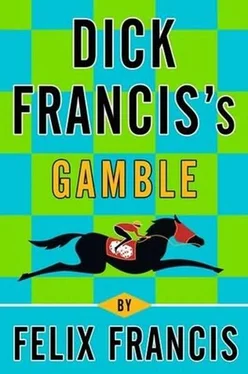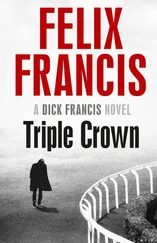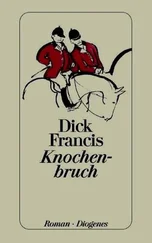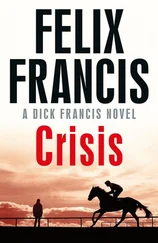“Perhaps he did, to start with,” said DCI Flight, “until he discovered the availability of the grants.”
“Maybe,” I said. “But I think it’s far more likely that the idea for stealing the EU grants came first and Shenington was simply brought in as the necessary provider of the priming money.”
“So he wasn’t the only one involved?” Tomlinson said.
“Not at all,” I said. “I’ve seen e-mails between a Uri Joram in the office of the European Commission in Brussels and a Dimitar Petrov in Bulgaria-”
“How did you see them?” Tomlinson interrupted.
“On Gregory Black’s computer,” I said. “He was copied on their correspondence.”
“And who is Gregory Black?” asked the detective inspector from the Fraud Squad.
“He’s one of the senior partners at Lyall and Black, the firm of financial advisers where I work.” Or where I used to work.
“And what do you think he has to do with this?” he asked.
“I’m only guessing, but I believe that Gregory Black probably found Shenington for Joram and Petrov. They would have needed someone with five million pounds to invest to trigger the much larger sum from the EU. Shenington was a client of Gregory’s, and who could be better, a man who controlled a wealthy family trust but was himself broke and in dire need of lots of ready money to pay his gambling debts. And Gregory would have known that. Financial advisers are aware of all their clients’ most intimate financial secrets.”
“But what has all this to do with the death of Herbert Kovak?” asked DCI Tomlinson. That was his major concern.
“Herb Kovak had accessed the file with the e-mails between Joram and Petrov just a few days before he was killed. And Gregory Black would have known he had because Herb’s name appeared on the recently accessed list. I saw it there. Perhaps Herb had asked some difficult questions about the project, questions that got him killed.”
I could see that I was losing them.
“Remember,” I said, “we are talking about a huge amount of money here. A hundred million euros. Even split four ways, it’s a handsome sum, and worth a bit of protecting.”
I could see them doing the simple math in their heads.
“And,” I went on, “in the last week or so, every time Gregory Black knew where I was, someone tried to kill me there. I now think that Shenington only changed his mind about wanting to talk to me, then asked me to the races, because I hadn’t been turning up at my office. He as good as admitted it yesterday. He said I was a difficult man to kill because I usually didn’t turn up when I was expected. Well, I was expected at a meeting with Gregory Black on Monday morning and I’m now certain that I would have been killed if I’d gone to it. I probably wouldn’t have even reached the office front door. I’d have been shot down in the street. Murdered in a public place, just like Herb Kovak was at Aintree.”
“I think it’s time I spoke again to Mr. Gregory Black,” said DCI Tomlinson. “I remember him from my previous encounter.”
Yes, I thought, and I bet he remembers you.
There followed a brief discussion as to who had the proper jurisdiction to arrest and on suspicion of what charges. Finally, it was agreed that the honor would fall to DI Batten, the detective inspector from the Fraud Squad. After all, the City of London was his patch. However, we all wanted to be present, and a total of three police cars made the trip across London to 64 Lombard Street, where we were joined by a fourth from the uniformed branch.
It was quarter past two by the time we arrived at my office. Gregory should be just back from his usual substantial lunch at the restaurant on the corner. I hoped he’d made the most of it. There would be no more foie gras and filet mignon en croûte where he was going.
“Can I help you?” Mrs. McDowd asked as the policemen entered. Then she saw me with them. “Oh, Mr. Nicholas, are these men with you?”
DI Batten ignored her. “Can you tell me where I might find Mr. Gregory Black?” he said rather grandly.
“I’ll call him,” she said nervously, clearly slightly troubled by the mass of people crowding into her reception area.
“No,” said DI Batten, “just tell me where he is.”
At that point Gregory walked down the corridor.
“There he is,” said Mrs. McDowd, pointing.
The detective inspector wasted no time.
“Gregory Black,” he said, taking hold of Gregory by the arm, “I arrest you on suspicion of conspiracy to defraud and also on suspicion of conspiracy to murder. You do not have to say anything, but it may harm your defense if you do not mention when questioned something which you later rely on in court. Anything you do say may be given in evidence.”
Gregory was stunned. “But that’s ridiculous,” he said. “I’ve done nothing of the sort.”
Then he saw me.
“Is this your doing?” he demanded, thrusting his face belligerently towards mine. “Some kind of sick joke?”
“Murder is never a joke,” said DI Batten. “Take him away.”
Two uniformed officers moved forward and handcuffed Gregory, who was still loudly protesting his innocence. The policemen ignored his pleas and led him out of the glass door and onto the lift.
I knew all too well what that felt like.
“What the hell’s going on?” Patrick had appeared in the reception, obviously summoned by the noise. “What are these men doing here?”
“It seems they are here to arrest Mr. Gregory,” said the unflappable Mrs. McDowd.
“Arrest Gregory? But that’s ridiculous. What for?”
“Conspiracy to defraud and conspiracy to murder,” DI Batten said.
“Fraud? Murder? Who has he murdered?” Patrick demanded, turning towards the policeman.
“No one,” said DI Batten. “Mr. Black has been arrested on suspicion of conspiracy to murder.”
Patrick wasn’t to be deterred.
“So who, then, is he suspected of conspiring to murder?”
“Me,” I said, stepping forward.
Patrick said nothing. He just stared at me.
Later in the afternoon, life in the offices of Lyall & Black at 64 Lombard Street returned to some sort of normalcy, if having one of the senior partners arrested for conspiracy to defraud and murder could ever be considered normal.
I went into my office for the first time in almost two weeks to find that Rory had moved himself into Herb’s desk by the window. Diana was still where she had always been.
“By rights, that should have been Diana’s,” I said to Rory. “She’s the more senior.”
“She had yours until half an hour ago,” Rory replied with a sneer. “Patrick said you weren’t coming back.” His tone implied that he was sorry I had.
Diana, meanwhile, remained silently resentful as I opened the window to let in some of the warm spring day. Perhaps the weather had changed for the better as well.
Maybe Diana wouldn’t have to wait too much longer to get back to my desk anyway. That is, if my desk remained at all. At the moment, I couldn’t see Lyall & Black surviving as a firm beyond next week. Once news of a fraud investigation got out, our clients would desert us quicker than rats from a sinking ship. Everything in financial services comes down to client confidence, and confidence in a firm involved in fraud would be close to absolute zero.
The quickest way to create a run on a bank was to publicly warn that there might be one. Depositors would quickly lose confidence in the institution and would queue around the block to get their money back. But of course no bank leaves cash lying around in its vaults just in case of such an eventuality. The money will have been lent out to other customers as mortgages and business loans. Hence the bank can’t pay. As word spreads that the bank is in trouble, even more depositors come looking for their money, and the whole crisis self-perpetuates and then crashes down like a house of cards. The bank’s credibility, which might have taken several hundred years to establish, can be destroyed in as little as a day. As it had been with Northern Rock in the UK and Indy-Mac in the U.S., and so would be with us. But, in our case, there would be no government bailout.
Читать дальше












